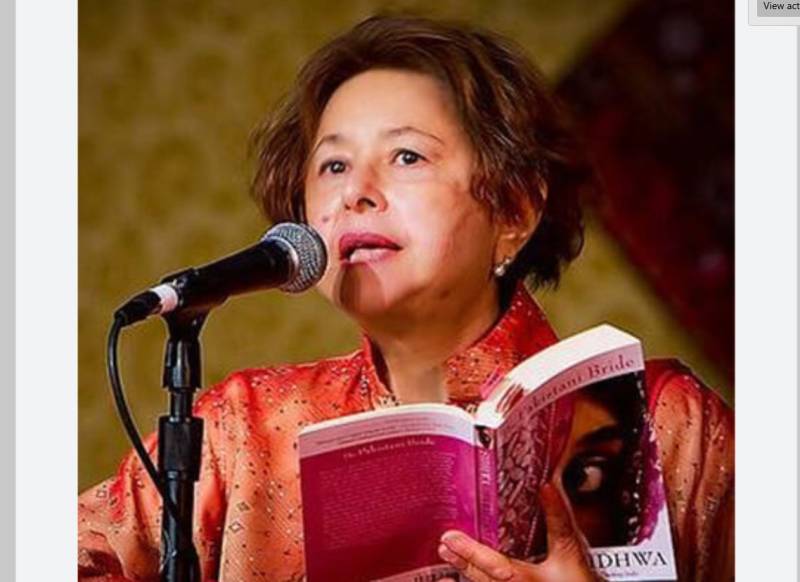Pioneering Pakistani novelist Bapsi Sidhwa dead at 86

Stay tuned with 24 News HD Android App

Renowned Pakistani novelist Bapsi Sidhwa, acclaimed for her searing portrayal of the Partition of India in her masterpiece "Ice Candy Man," has died in the US city of Houston at the age of 86.
She passed away on December 25, her daughter Mohur Sidhwa told AFP.
Born on August 11, 1938, in Karachi to a Parsi family, Sidhwa spent her formative years in Lahore, which was the backdrop for much of her writing.
She was the first Pakistani writer to gain global recognition for her works, which were written in English and paved the way for a wave of celebrated authors in that language in recent years, including the likes of Kamila Shamsie and Mohammed Hanif.
Her most famous book, 1988's "Ice Candy Man" -- later published as "Cracking India" -- tells the story of a young Parsi girl, afflicted by polio as Sidhwa herself was, as she witnesses the brutal communal strife that accompanied the Partition of the Indian subcontinent in 1947.
The novel draws on Sidhwa's personal experiences. In interviews, she recounted harrowing memories, including seeing the body of a young man spill out of a gunny sack kicked over by her gardener as he escorted her to a private tutor.
"Ice Candy Man," was later adapted into the critically acclaimed 1998 film "Earth," directed by Indian-Canadian filmmaker Deepa Mehta and starring Bollywood icons Aamir Khan and Nandita Das.
It was also included on the BBC's list of 100 most inspiring novels in 2019.
Her other works include 1978's "The Crow Eaters," a witty satire poking fun at the foibles of a Parsi family in colonial India, and 1993's "An American Brat," a coming-to-America story following the journey of a Parsi girl fleeing Islamization in dictator Zia-ul-Haq's Pakistan.
Parsis -- followers of Zoroastrianism, one of the world's oldest religions -- fled Persia over a millennium ago, seeking refuge in the Indian subcontinent.
Recent emigration, driven by instability in Pakistan, means there is only a tiny community left in the country.
Sidhwa herself later emigrated to the United States, teaching at institutions including Columbia University, Mount Holyoke College and the University of Houston.
Her accolades included the Sitara-i-Imtiaz, a high-ranking Pakistani civilian award, and Italy's prestigious Mondello Prize for foreign authors, in 2007.
